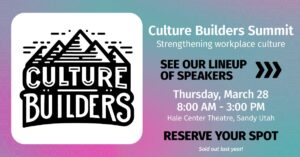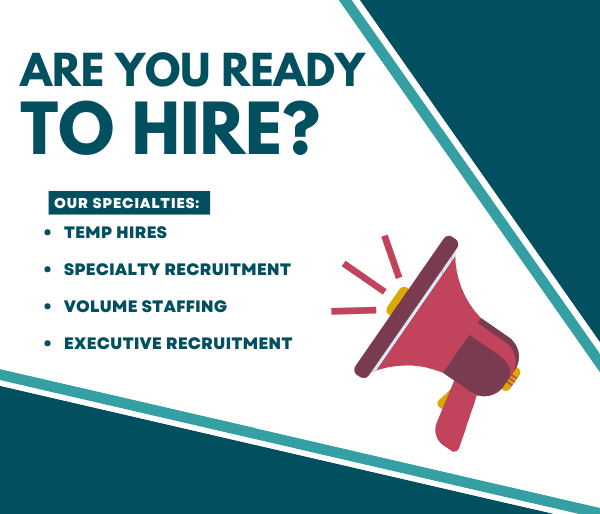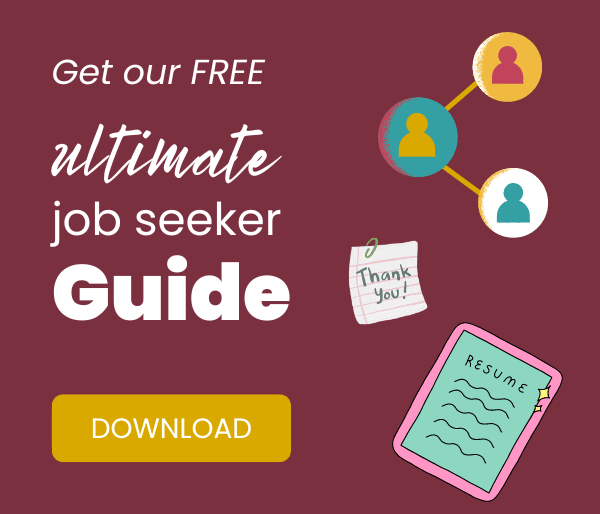Finding a job can be challenging and time-consuming, especially if you don’t know where to start. That’s where recruiters come in. Recruiters are professionals who help job seekers find employment opportunities that match their skills and experience, and they can connect you with potential employers, help you navigate the job market, and give you valuable insights into the industry.. They work with companies and organizations to fill job vacancies by sourcing and screening candidates. In this article, we will explore how to find a recruiter, what recruiters do, and the pros and cons of working with a recruiter.
What is a Recruiter?
Before you start searching for a recruiter, it’s a good idea to know who you’re looking for. Recruiters are professionals who specialize in finding talent for companies and organizations. They act as intermediaries between employers and job seekers. Companies use recruiters to help them find qualified candidates for job vacancies. Recruiters source and screen candidates, conduct interviews, and present the most suitable candidates to employers.
Recruiters also offer career advice and guidance to job seekers. They help job seekers improve their resumes, prepare for interviews, and negotiate salaries. Recruiters are well-connected professionals who have a deep understanding of the job market and industry trends and can provide guidance on job opportunities, salary expectations, and other career-related matters. They can help job seekers identify job opportunities that match their skills and experience.
How do Recruiters Help You Find a Job?
Recruiters can help job seekers find employment opportunities in several ways. They have access to job openings that are not advertised on job boards or company websites. Recruiters also have relationships with hiring managers and decision-makers in companies, which can give job seekers an advantage.
Recruiters can help job seekers prepare for interviews by providing them with information about the company and the position. They can also give job seekers advice on how to answer common interview questions and how to negotiate salary and benefits.
Recruiters can also help job seekers improve their resumes and cover letters. They can provide feedback on the content and structure of these documents, which can make job seekers more attractive to potential employers.
Pros and Cons of Working with a Recruiter
When people are learning how to find a recruiter, they often want to know the pros and cons of engaging one. No doubt: working with a recruiter has its advantages and disadvantages. Here are some pros and cons to consider:
Pros:
- Through recruiters, job seekers can access job openings that are not advertised.
- Recruiters can provide job seekers with valuable career advice and guidance.
- A good recruiter can help job seekers prepare for interviews and negotiate salaries.
- They can help job seekers improve their resumes and cover letters.
Cons:
- Recruiters may not have access to all job openings, so it might be a good idea to work with several recruiters.
- Because companies hire recruiters for specific positions, they may not be able to find a job that matches a job seeker's skills and experience.
- They may prioritize the needs of employers over job seekers. At the end of the day, that's putting dinner on the table for them.
- If recruiters have a large candidate pool, they may not have the time or resources to provide personalized attention to all job seekers.
To make your experience working with a recruiter a good one, we want to teach you how to find a knowledgeable and responsive recruiter.
Prepare Before Embarking On A Recruiter Search

Before embarking on a recruiter search, it is important to prepare yourself. If you reach out to a recruiter unprepared, you will waste the time you could interview with potential employers on doing basic preparation. Here are some tips on how to be prepared to work with a recruiter when you find one:
Polish your resume
Your resume is your marketing tool. It should highlight your skills, experience, and achievements. Make sure your resume is up to date and free of errors.
Update your LinkedIn profile
LinkedIn is a powerful professional networking tool. Make sure your LinkedIn profile is up to date and complete. Highlight your skills, experience, and achievements just like on a resume, but LinkedIn doesn’t have a limit of bullet-points you can highlight. Poorly organized LiknedIn could turn away potential employers even if your recruiter recommended you as a candidate.
Understand your work goals
What are your career goals? What kind of job do you want? Understanding your work goals can help you identify job opportunities that match your skills and experience. It is not the recruiter’s job to help you find yourself, so if you set your goals, it will be much easier for a recruiter to find you a good opportunity.
Research potential employers
Before working with a recruiter, research potential employers that the recruiter is working with. Find out about their culture, values, and mission. This can help you identify job opportunities that are a good fit for you and be more successful when you learn how to find a good recruiter.
Prepare your interview skills
Before embarking on a recruiter search, prepare your interview skills. Practice answering common interview questions and think about how you can elaborate on your skills and experience during the interview. You should also prepare questions to employers that will help you stand out.
Prepare your references
Prepare a list of professional references that can vouch for your expertise. Make sure they are aware that you are looking for a job and are willing to provide a reference if needed.
Set realistic expectations
Working with a recruiter does not guarantee that you will find a job immediately. Set realistic expectations and be patient. It may take some time to find the right job opportunity.
The bottom line is: the more prepared you are, the easier it would be for a recruiter to connect you with employers and easier for you to find a responsive recruiter. You can’t expect a high engagement level from a recruiter if all you did is send a resume that you haven’t updated in five years.
Tips on How to Find a Recruiter
Now that you have prepared yourself, it’s time to learn how to find a recruiter. Most of the time it’s not a 5-minute search, but exploring your options can help you find a recruiter that will align with your vision. Here are some tips on how to do that:
Use online directories
There are several online directories that list recruiters in different industries, locations, and specialties. Some of the directories include IRecruit.com, Recruiter.directory and Wecruitr.io.
Use social media
Social media platforms like LinkedIn, Twitter, and Facebook can be great resources for finding recruiters. Use the search function to find recruiters in your industry or location. You can also join industry groups on LinkedIn and connect with recruiters in those groups.
Google search
Use Google to search for recruiters in your area or industry. Search for terms like “headhunters near me” or “recruiters in [your industry].” If you allow it, Google knows where you are, and it will show the relevant results to help you find a recruiter that’s close and in your industry.
Engage your professional network
Reach out to colleagues, friends, and family members who work in your industry. Ask if they know any recruiters who specialize in your field.
Get recommendations
You are not the only one who wonders how to find a recruiter. In fact, your network might have that experience. Ask for recommendations from people who have worked with recruiters in the past, and they may be able to recommend a recruiter who is a good fit for you.
Blog Posts or Publications
Recruiters often try to attract candidates through content (just like we are right now), so by finding relevant blog posts or publications in your industry, you may be able to identify recruiters and their companies. Since you are already on their website, click around and see if this is the company you want to engage with.
Evaluate the recruiter's professionalism
Once you gather leads, take a look at the recruiter’s website, publications, and success stories. This can give you an idea of the recruiter’s experience and professionalism. Often, you can find a recruiter’s LinkedIn profile and learn more about them, their approach, and clients. Recruiters often use LinkedIn to promote the job openings, so it would provide you an insight about what area they are working in.
How to Choose the Recruiter After You Find One

Once you have found a few potential recruiters, it’s time to choose the right one for you. Here are some factors to consider:
Learn about the recruiter’s network: Ask the recruiter about their network of employers and job openings. Make sure the recruiter has connections in your industry and can help you find a job that matches your skills and experience.
Make sure the recruiter is in your field: Choose a recruiter who specializes in your field. This can increase your chances of finding a job that is a good fit for you.
Check out testimonials: Read testimonials from other job seekers who have worked with the recruiter. You can use Google Reviews or Glassdoor to learn more about their recruiting business. This can give you an idea of the recruiter’s track record, success rate, and how they treat job seekers.
Reach out and evaluate their answer/interest: The quickest way to see if you found a good recruiter is to reach out to and evaluate their response. Are they interested in working with you? Do they seem knowledgeable about your industry and job market? Do they have any openings in your field?
Final Thoughts on How to Find a Recruiter
Finding a recruiter can be a valuable tool in your job search. However, it’s important to prepare yourself before embarking on a recruiter search. Polish your resume, update your LinkedIn profile, understand your work goals, and set realistic expectations.
Use online directories, social media, and your professional network to find potential recruiters. Evaluate the recruiter’s experience, network, and professionalism before choosing the right one for you.
Remember that working with a recruiter is not a guarantee of finding a job. It takes time and patience to find the right job opportunity. But with the help of a recruiter, you can increase your chances of finding a job that matches your skills and experience.
In conclusion, finding a recruiter is an important step in your job search. By following these tips, you can find a recruiter who can help you navigate the job market and find the right job opportunity for you.
At Hire Integrated, we are happy to serve job seekers and employers in Salt Lake City Metropolitan Area.










